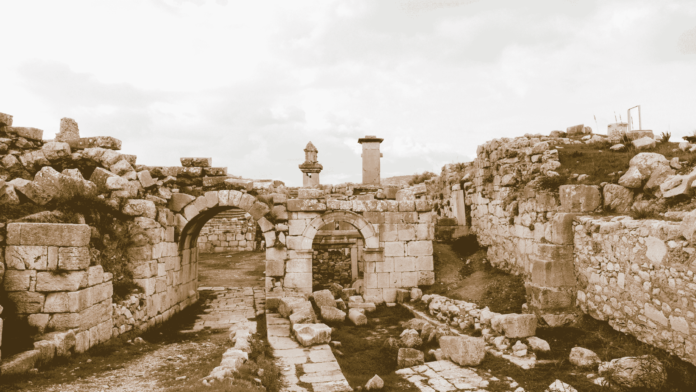Nigeria, the “Giant of Africa,” is a country brimming with vibrant history, diverse cultures, and timeless traditions. From ancient kingdoms to spiritual sanctuaries, its cultural heritage sites offer a gateway into stories of resilience, innovation, and artistry. These destinations are more than just places to visit; they are living narratives that connect the past with the present. Whether you’re drawn to centuries-old architecture, sacred groves, or the bustling centers of historic empires, Nigeria’s heritage sites provide a treasure trove of experiences waiting to be uncovered.
Here’s a guide to some of the must-visit cultural landmarks in Nigeria, perfect for history enthusiasts and curious travelers alike.
1. Sukur Cultural Landscape (Adamawa State)
Designated as a UNESCO World Heritage Site in 1999, the Sukur Cultural Landscape is perched on a hill in northeastern Nigeria. It offers a glimpse into an ancient society that thrived in iron smelting and trade. The site is renowned for its terraced farmlands, traditional Hidi (chief) residence, and intricate stone architecture. Visitors can experience the harmony between nature and culture that has existed here for centuries.
2. Osun-Osogbo Sacred Grove (Osun State)
Another UNESCO World Heritage Site, the Osun-Osogbo Sacred Grove, is a haven of spirituality and art. Located in Osogbo, the capital of Osun State, this forest sanctuary is dedicated to Osun, the Yoruba goddess of fertility and water. The grove features shrines, sculptures, and artworks created by the renowned Austrian artist Susanne Wenger and local artisans. The annual Osun-Osogbo Festival, held in August, attracts thousands of visitors who participate in traditional Yoruba rituals and celebrations.
3. Benin City Walls and Moats (Edo State)
The Benin Walls and Moats, located in Edo State, are a marvel of ancient African engineering. Built during the reign of the Benin Empire, these walls were once the largest earthworks in the world. Though much of the structure has been lost to urbanization, remnants of the walls and moats still stand as a testament to the architectural prowess and defensive strategies of the Benin people. A visit to the site offers insights into the empire’s rich history, art, and governance.
4. Arochukwu Long Juju Shrine (Abia State)
Steeped in history and mysticism, the Arochukwu Long Juju Shrine served as a spiritual and judicial center for the Aro Confederacy. This site, also known as the Ibini Ukpabi Oracle, was a place where disputes were settled, and justice was meted out. The shrine includes a dark tunnel believed to symbolize the journey to the spirit world. It is an essential destination for anyone interested in the spiritual and judicial systems of pre-colonial Nigeria.
Related Content: Top Cultural Festivals in Nigeria You Can’t Miss
5. Ogbunike Caves (Anambra State)
The Ogbunike Caves, a UNESCO tentative site, are a network of caves with spiritual and historical significance to the Igbo people. Located near Onitsha, these caves have been a place of worship and refuge for centuries. Guided tours through the caves allow visitors to marvel at their natural formations while learning about their cultural importance. The annual Ogbunike Cave Festival is a vibrant event celebrating the site’s spiritual legacy.
6. Kano City Walls and Gates (Kano State)
Built over 1,000 years ago, the Kano City Walls and Gates are among the most iconic remnants of Nigeria’s precolonial history. These defensive structures once protected the ancient city of Kano, a hub of trade and Islamic scholarship. Visitors can explore the gates, visit the Emir’s Palace, and delve into Kano’s rich history at the Gidan Makama Museum, which is housed in a 15th-century building.
7. Idanre Hills (Ondo State)
The Idanre Hills, located in Ondo State, offers a mix of cultural and natural heritage. This stunning site features ancient settlements, shrines, and inscriptions, all nestled within a breathtaking landscape of hills and valleys. The climb to the top includes over 600 steps, but the panoramic views and the chance to explore relics of the past make it well worth the effort.
8. National Museum, Lagos (Lagos State)
Located in the bustling city of Lagos, the National Museum houses some of Nigeria’s most prized artifacts, including the famous Nok terracotta sculptures and Benin bronzes. Established in 1957, the museum is a treasure trove for anyone interested in Nigeria’s rich art, history, and culture. Its central location also makes it a convenient stop for visitors exploring Lagos.
9. Tafawa Balewa Square (Lagos State)
A symbol of Nigeria’s independence, Tafawa Balewa Square in Lagos is steeped in modern history. It was here that Nigeria’s independence was declared in 1960. The square features monuments such as the Remembrance Arcade, which honors Nigerian soldiers, and the Independence House, a relic of the colonial era.
10. Olumo Rock (Ogun State)
Located in Abeokuta, Olumo Rock is not only a natural wonder but also a cultural and historical monument. This massive rock served as a fortress for the Egba people during intertribal wars in the 19th century. Today, visitors can climb the rock, explore its caves, and learn about its historical significance while enjoying stunning views of the surrounding landscape.
Tips for Exploring Nigeria’s Cultural Heritage Sites
- Plan Ahead: Research the sites you want to visit and their entry requirements.
- Hire a Guide: Local guides can enrich your experience with stories and context about the sites.
- Respect Local Customs: Many sites have spiritual significance, so it’s essential to respect local traditions.
- Travel Safely: Ensure you are aware of the local travel advisories and guidelines.
- Immerse Yourself: Engage with locals, participate in festivals, and savor traditional cuisine for a holistic experience.
Exploring Nigeria’s cultural heritage sites is a journey through time, offering a deeper understanding of the country’s rich history, diverse cultures, and resilience. Whether you’re drawn to ancient empires, spiritual sanctuaries, or natural wonders, Nigeria’s cultural heritage sites promise an unforgettable adventure. Pack your bags, and get ready to explore the heart of Africa’s history and culture!




